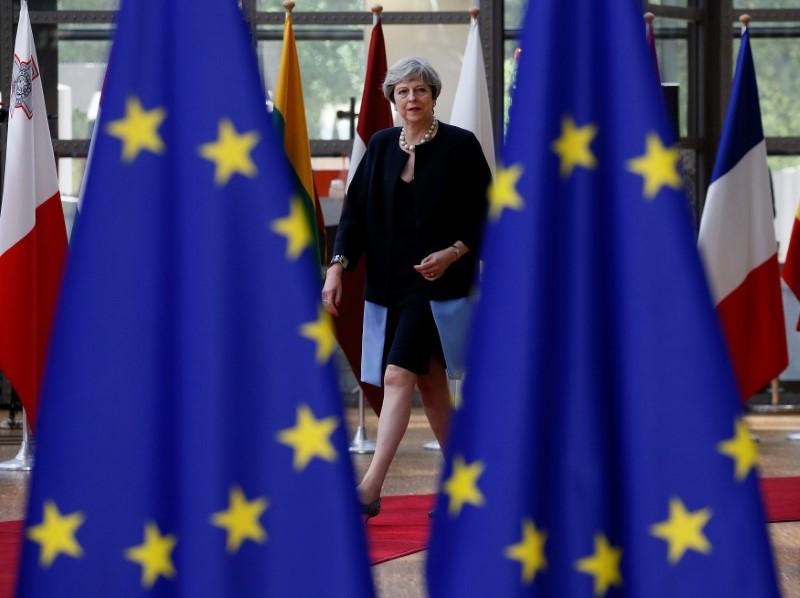While considering Vietnam and the Association of Southeast Asian Nations (ASEAN) good options after leaving the European Union (EU), the United Kingdom (UK) is putting everything on hold.
British MPs have just begun a week-long debate on the withdrawal of the UK from the EU (so called Brexit).
But regardless of whether or not it is a “deal” or “no deal,” the post-Brexit plans are running.
A no-deal Brexit means there will be no 21-month transition period as Prime Minister Theresa May expects, with changes in terms of trade, money, immigration, laws and others immediately applied in the relationship between the UK and the EU.
Vietnam and ASEAN on radar screen
The possibility of Britain joining the Comprehensive and Progressive Agreement for Trans-Pacific Partnership (CPTPP) was mentioned after PM May’s visit to Japan on December 1.
Yet it was not the first time such an international trade agreement had appeared when it comes to the UK’s future plans when they officially say goodbye to the EU.
Back on July 18, Britain’s Trade Minister George Hollingbery wrote on Twitter, “If the UK were to become part of the Comprehensive and Progressive Agreement for Trans-Pacific Partnership (CPTPP) it would increase CPTPP’s coverage of global GDP to around 17%.”
The agreement is a free trade deal that involves 11 countries – Australia, Brunei, Canada, Chile, Japan, Malaysia, Mexico, New Zealand, Peru, Singapore and Vietnam – whose combined economy represents 13.4 percent of global GDP, approximately US$13.5 trillion.
It will come into force on December 30.
CPTPP, Vietnam, and ASEAN are the three possible ways for the post-Brexit UK, according to a report made by the UK-ASEAN Business Council and the LSE Saw Swee Hock Southeast Asia Center.
A research on future options for the UK-ASEAN economic relationship spells out the kingdom’s longstanding and deep historical relations with Southeast Asia.
In terms of trade, the UK’s exports to ASEAN are higher than its shipments to Japan, India and South Korea.
In 2016, two-way trade between the UK and Southeast Asia amounted to £32.4 billion ($41.2 billion) – a 9.1 percent increase from 2015.
Vietnam is now the UK’s third-largest trade partner in ASEAN, accounting for 14.9 percent of total trade with the bloc.
To put it into context, Vietnam is now one of the most attractive trade partners to the UK, considering it is the only country where the kingdom still maintains a market share in the region, according to the report.
Speaking to Tuoi Tre News on the sidelines of a business reception in Ho Chi Minh City on Sunday, British Consul General Ian Gibbons shared his thoughts on the position of Vietnam, “It’s obviously a very key player within ASEAN. It’s a big growth economy and that’s good for the UK for doing trade and in investment. If the EU FTA [EU-Vietnam free trade agreement, commonly known as EVFTA in Vietnam] doesn’t get signed, the UK is at the moment considering the CPTPP as well, whether to become a member of that.”
A waiting game
Asked by Tuoi Tre News about the potential of a Vietnam-UK pact, UK diplomats and businesses shared the same perspective at the reception.
Gareth Ward, UK Ambassador to Vietnam, said his government is currently looking into whether it should make the application to join CPTPP.
He also told Tuoi Tre News that the UK has arranged some discussion with the CPTPP members, including Vietnam.
“There’re a lot of interests among the members in working with the UK,” he said.
“The UK and Vietnam are both strong supporters of free trade, and that means we’ll find the way to make sure trade is maintained smoothly.”
Ambassador Ward added a bilateral FTA with Vietnam is an open option.
“I am confident that when the UK leaves the EU, we will be ready to negotiate a bilateral trade deal with Vietnam, which will be good for both sides,” he said.
However, any of Britain’s plans for alternatives after Brexit is now on hold.
International observers indicate that while the UK will seek to nurture its relationship with Vietnam, Downing Street would use the EU FTA as a basis for its own bilateral trade deal with Hanoi.
“We would like to see the ratification of the EU FTA signed before Brexit takes place, in which case we would be able to follow the finding of the EU FTA. So ideally that would be the situation. If that does not happen I think we would like to look into a bilateral agreement between Vietnam and the UK,” said Peter Rimmer, executive director of British Business Group Vietnam (BBGV).
According to UK media, Britain will be able to officially open negotiations to join the CPTPP in March, when they formally leave the EU.
New trade deals will only come into effect after Britain is free of EU customs rules.
The kingdom’s Institute of Directors (IoD) is reportedly welcoming plans to join the CPTPP but it has urged ministers to involve businesses from the start.
“It’s unsurprising that an agreed trade treaty is likely going to be easier for the UK to accede to, rather than starting from scratch with new parties – although this may give less wiggle room for any UK-specific changes,” IoD trade chief Allie Renison said.
Like us on Facebook or follow us on Twitter to get the latest news about Vietnam!


















































